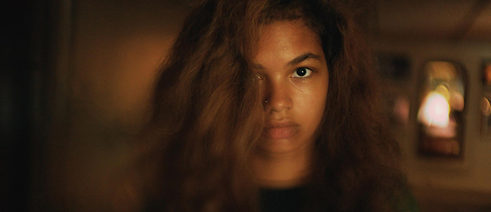Berlinale Bloggers 2018
Black women at Berlinale – Mental health

For the final part of her article series on black women in film, our blogger Grace Barber-Plentie focuses on the portrayal of mental health.
As part of my role as a Berlinale Blogger for Goethe Institut, I’ve been encouraged to write not just about films from my country of origin, but also about a subject that’s important to me. Starting with my review of Game Girls, I’ve chosen to write about films about black women at Berlinale - it’s so rare to see so many interesting and dynamic depictions at a film festival. I’ll be writing about these films in two sections - gender and sexuality, family, and mental health. I’m also delighted to have been able to interview the director of Shakedown, Leilah Weinraub.
In this article I’ll be looking at the way that black women’s mental health is portrayed in films at Berlinale, discussing Our Madness and Madeline’s Madeline.
Our Madness
As it was the first film I saw at Berlinale, I must admit that the details of Our Madness are a little hazy in my mind. However I feel like that’s the point of the film – it’s a hazy, experimental film with little narrative running through it - one where you’re likely to see images like an abandoned cinema full of goats and a victim of crime with their entire chest neatly cut open. Surreal doesn’t quite cut it.While the experimentalism of Our Madness is admirable, I was hoping to see a little more, well, madness in the film, especially given that it starts in a mental hospital for African women. The women are never even given first names or personalities, and instead they are presented as one nameless mass. We never find out why they are locked up.
The film takes an interesting turn when its protagonist escapes and seeks out her husband and son. But as previously mentioned, this is where the film takes on an experimental turn, where most narrative agency is removed from the film.
While Our Madness is stunning visually, it would’ve been much more satisfying to see a film that properly explores its protagonist’s sexuality.
Madeline’s Madeline
What’s refreshing about Madeline’s Madeline is that while we know that something is wrong with Madeline, we’re never able to put our finger on exactly what. The mystery surrounding Madeline’s condition is further exacerbated by her overprotective mother (Miranda July in a rare role outside her own oeuvre), who often seems equally as “crazy” as Madeline.
Mood is absolutely crucial in this film – director Josephine Decker creates a sense of unease that lingers throughout the film, even in its lighter moments. Throughout the film Madeline transforms into a cat, a turtle, a pig - and we’re never quite sure what’s real. Decker creates a bracing film that’s a much needed look into the world of a mentally ill black girl – never patronising or becoming unrealistic.
